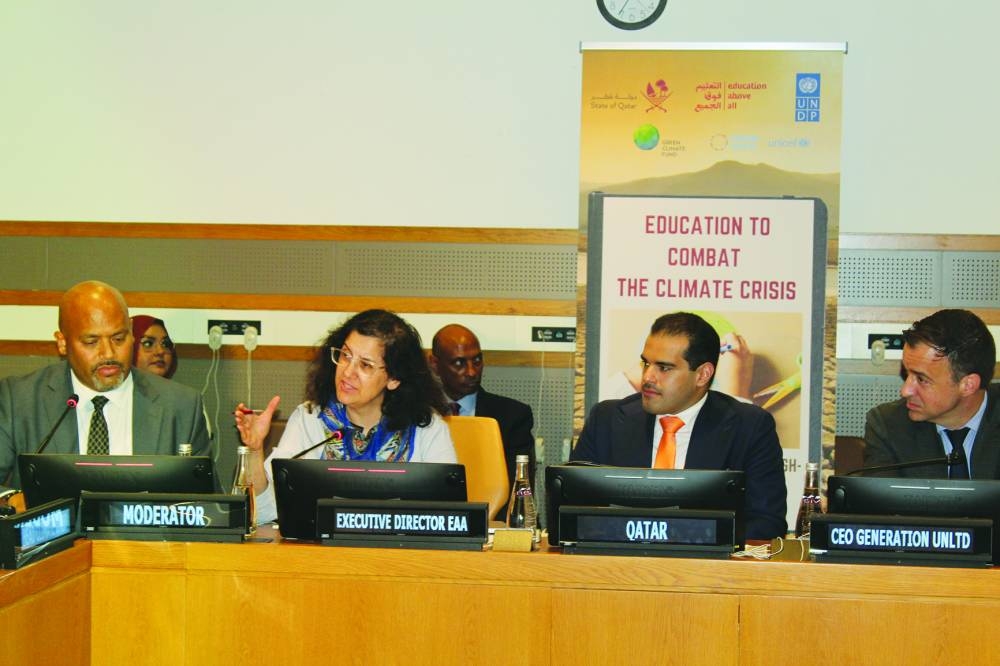The Education Above All (EAA) Foundation has highlighted the role of education in facing the challenges of climate crisis at a United Nations event.
Held in partnership with the Permanent Mission of Qatar to the United Nations, Generation Unlimited, Unicef, UNDP and the Green Climate Fund (GCF), the event titled “Education to Combat the Climate Crisis” took place during the High-Level Political Forum (HLPF 2024) on Sustainable Development at the United Nations Headquarters in New York.
The HLPF annual meeting is the core United Nations platform for follow-up and review of the 2030 Agenda for Sustainable Development Goals (SDGs) at the global level. This year’s HLPF 2024, under the theme “Reinforcing the 2030 Agenda and Eradicating Poverty in Times of Multiple Crises: The Effective Delivery of Sustainable, Resilient, and Innovative Solutions,” focused on several Sustainable Development Goals, including urgent actions to combat climate change and its impacts.
HE Ambassador Sheikha Alya Ahmed bin Saif al-Thani, Permanent Representative of Qatar to the United Nations, set the stage for a meaningful dialogue, sharing Qatar’s commitment to investing on education and equipping children and youth with the knowledge and skills needed to build a sustainable future. The keynote address by Kevin Frey, CEO of Generation Unlimited, emphasised the critical role of education in addressing global environmental challenges and the importance of empowering youth to lead climate action in their communities.
During the session, EAA explored how education can significantly mitigate these impacts by fostering resilience and empowering communities with sustainable solutions. The discussion featured a panel of distinguished speakers, including Catalina Duarte Salcedo, education specialist with Unicef Colombia; Susana Puerto, head of the Youth Employment Accelerator at the ILO; Srilata Kammila, head of Climate Change Adaptation at the UNDP; Darren Karjama, Partnerships and Outreach Specialist at the Green Climate Fund; Maleiha Malik, executive director of PEIC (Protect Education in Insecurity and Conflict) at EAA; Noura al-Kaabi, strategic partnerships researcher, Qatar Fund for Development, and Salwa al-Kuwari, a youth advocate from EAA, with George Tavola from EAA moderating the event.
The panel delved into the intersections of education, environmental protection, and sustainable employment, emphasising the need for innovative solutions to climate challenges. This discussion came at a critical time as the world deals with escalating climate threats, highlighting the need for educational strategies that lead to significant, climate-resilient changes. EAA reaffirmed its commitment to quality education as a crucial lever for sustainable development and peace. By focusing on educational interventions in areas facing severe environmental and climate challenges, EAA supports the building of more stable and inclusive societies.
Malik, stated: “We urge the global community to recognise the vital role of education in combatting climate change. To Page 2

Maleiha Malik, executive director of PEIC speaking at the panel.
